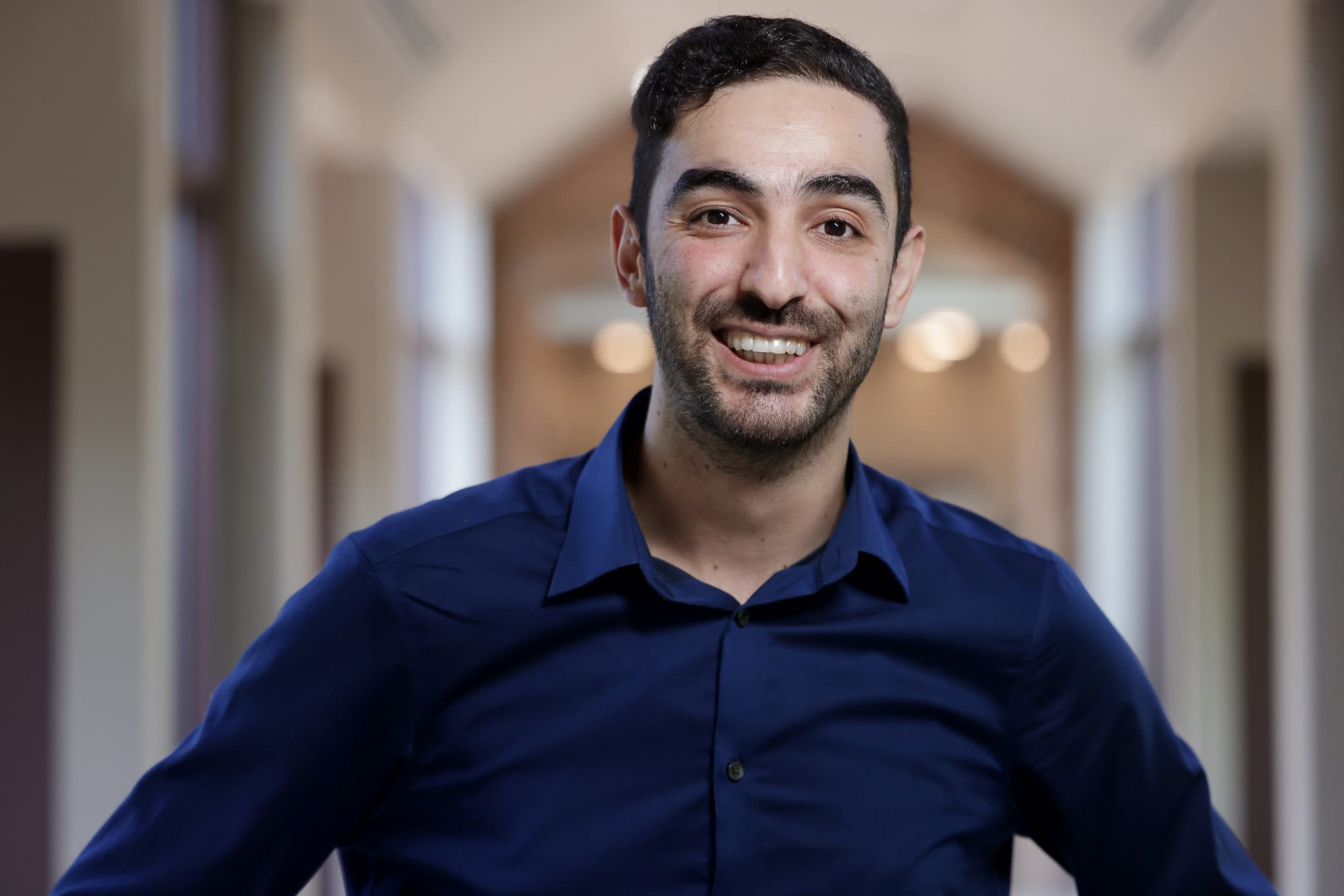
Majdi Radaideh wins DOE Distinguished Early Career Award
RAD’s research seeks to develop new algorithms for optimizing and controlling advanced nuclear reactors.

RAD’s research seeks to develop new algorithms for optimizing and controlling advanced nuclear reactors.
Majdi Radaideh (RAD), our new assistant professor in the U-M Department of Nuclear Engineering and Radiological Sciences (NERS), has been awarded funding for research as part of the U.S. Department of Energy Office of Nuclear Energy’s Distinguished Early Career Program (DECP).
“Our department is extremely proud of Majdi’s accomplishment,” said Todd Allen, chair of the department. “We believe his novel approaches will help transform and modernize our field. He has already established partnerships with multiple faculty and we are excited for the next few decades of his success in NERS.”
The Distinguished Early Career Award will support RAD’ research into developing algorithms for optimizing and controlling advanced nuclear reactors. The algorithms will be based on NeuroEvolution Optimization with Reinforcement Learning (NEORL) and will incorporate unbiased ensemble optimization and multiobjective support based on the island model. They will also utilize dynamic surrogate models and parallel search for efficient optimization of expensive problems.
Additionally, a hybrid controller combining reinforcement learning and model predictive control will be developed. The algorithms will be applied to various DOE-NE priorities, such as core design optimization and coal-to-nuclear transition support. The research also includes an innovative teaching approach that combines theoretical and computational skills for undergraduate nuclear engineering students. RAD has already started his 50/50 integrated theoretical and computational teaching style in NERS 442 (Nuclear Power Reactors) and has received very positive evaluations from students. He will be expanding his teaching approach to more NERS courses in the following years.
“Creating this early career program in DOE-NE was an excellent decision to encourage more talents to join the academia and serve the nuclear industry,” said RAD. “I am honored to be part of this special group and I am very excited to start this project.”
“Since its inception, the structure of the NEUP program has undergone more positive changes in the last two years than ever before,” said RAD. “From R&D budget increase and more diverse FOA, to shifting the proposal timeline to help with student recruitment, to more opportunities for early career faculty and undergraduates, it is hard not to recognize all outstanding efforts led by Dr. Katy Huff and all staff at the NEUP program.”
RAD received a BS in nuclear engineering from the Jordan University of Science and Technology, and an MS and PhD in nuclear engineering from the University of Illinois at Urbana-Champaign. After completing his graduate studies, he became a postdoctoral associate and then a research scientist at the Massachusetts Institute of Technology. Before joining our department, he worked at Oak Ridge National Laboratory, where he conducted research on autonomous control, anomaly detection, and uncertainty quantification to reduce mechanical/electrical system interruptions of the Spallation Neutron Source.
At NERS, RAD leads the AIMS (Artificial Intelligence and Multiphysics Simulations) Laboratory, which focuses on the intersection between nuclear reactor design, multiphysics modeling and simulation, advanced computational methods, and machine learning algorithms to drive advanced reactor research and improve the sustainability of the current reactor fleet. RAD has extensive skills in the development and usage of nuclear codes, programming experience, parallel computing, software engineering, and machine learning algorithms. His most recent awards include an MIT Postdoctoral Outstanding Service Award, the ANS National Mark Mills Award for the best PhD thesis work in nuclear engineering, and the best paper award at the Best Estimate Plus Uncertainty Conference (BEPU-2018). To date, RAD has authored 75+ research publications including 35+ journal publications, where he was the first/major author in 30+ journal papers.
This year, the DOE awarded more than $3.1 million through its Distinguished Early Career Program to support five early career faculty. RAD will receive a grant of $625,000 to support his research. According to DOE-NE, it is the office’s most prestigious award for faculty members beginning their independent careers and it invests in the innovative research and education programs of outstanding early-career university faculty poised to pave new lines of inquiry and advance mission-critical research directions in nuclear energy.
This is the second Distinguished Early Career Program award given to a NERS faculty member, with Brendan Kochunas being the first in 2022, the year the program began.